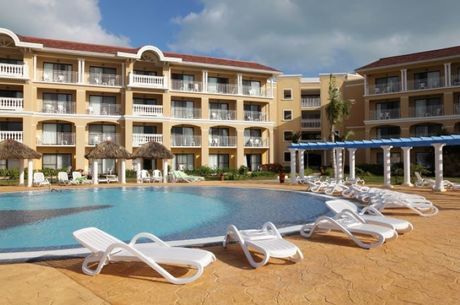Your pool is likely one of your guests’ most loved amenities, but, as you know, with great fun comes great responsibility. It’s essential to take all measures to help ensure guests remain safe at your pool, including drowning prevention. Drowning is one of the most traumatic things that can happen in any scenario, but it is especially tragic when it happens at a hotel pool. For the most part, people stay at hotels for leisure and fun. Nobody has drowning in their plans, but unfortunately, they occur and must be acknowledged and addressed.
Stats to know
Drownings may be more common than you think. Although no central database for drowning accidents exists—and drownings often go unreported—a few government organizations like the Centers for Disease Control & Prevention gather information as best they can.
Here are some statistics offered by stopdrowningnow.org:
- In the U.S., an average of 3,500 to 4,000 people drown per year. That is an average of 10 fatal drownings per day.
- Drowning is the leading cause of unintentional injury-related death for children ages 1-4.
- Drowning remains in the top 5 causes of unintentional injury-related death from birth to 5 years old.
- 23% of child drownings happen during a family gathering near a pool.
- It’s estimated that another 5 to 10 people receive hospital-related care for nonfatal drowning injuries for every fatal drowning victim.
Common factors in hotel drownings
Here are the most common causes of hotel drownings, according to the Button Law Firm:
- Lack of lifeguards or supervision
- Broken or missing pool gate or fence
- Inability to swim
- Defective pool ladders
- Poolside bars that serve guests to the point of intoxication
- Slippery tiles
- Broken steps
- Defective pool drains
- Broken diving boards
- Defective pool ladders
- Lack of proper signage
- Overcrowding
- Poor maintenance
Who’s liable?
Who is generally responsible for a hotel drowning? It depends, according to the law firm of Wolf & Pravato:
- The lifeguard on duty
- The hotel
- The property owner
- A maintenance company
- An equipment manufacturer
In cases of litigation, an employee (like a lifeguard) is not usually the one who is sued. It’s the employee’s employer—in this case, the hotel—that is held accountable. This is the principle of vicarious liability: employers take responsibility for the consequences of their employees’ negligence.
Sometimes more than one party could be held at fault; for instance, not just the hotel but the manufacturer of faulty pool equipment, like a stepladder or diving board.
In most cases, any type of drowning incident can lead to a guest hiring a personal injury lawyer.
Compensation to the injured party could depend on a number of factors. According to the Downtown LA Law firm, the damages could be calculated from the severity of the incident and the impact it had:
- Medical expenses from the past and future for surgery, hospitalization, ambulance transportation, physical therapy, rehabilitation and more
- Property damage if you lost various pieces of personal property, such as your phone or jewelry
- Missed income if you were unable to return to work, needed to take additional time to recover, required medical treatment that would sideline you and more; these damages may include bonuses, tips, commissions,and others
- Pain and suffering damages to cover emotional stress, psychological trauma, PTSD, anxiety, fear and more
- Wrongful death damages to account for loss of life, funeral and burial expenses, pre-death medical bills, pre-death pain and suffering, loss of relations and consortium, loss of expected savings and inheritance, loss of income and more
Of course, tragedies of this type cannot always be easily prevented. However, there are precautions you can take in order to minimize your hotel’s drowning risks:
- Hire a lifeguard staff that covers all swimming hours.
- Make sure your entire staff—in addition to lifeguards—is trained in CPR.
- Be diligent about locking your pool area during off-hours.
- Schedule regular pool maintenance and repairs.
A strong solution to minimizing hotel drownings: an emergency communications system
Having your guests see that you’ve placed an emergency phone by your pool shows them that you believe their safety and well-being is a high priority. An emergency phone can be used by guests and even lifeguards to report drownings and accidents—as well as pool maintenance issues and hazards.
An emergency phone system can ultimately save you thousands of dollars in maintenance and repairs, and more importantly, save lives.
A Kings III Emergency Phone System, for instance, can reduce your hotel’s risk and liability by providing you with call recording for event verification and incident reports. The Kings III call center can keep you abreast of what’s happening on your property—a benefit not matched by most standard emergency monitoring or 911 centers.
One of the biggest benefits of a Kings III Emergency Communications System: Guests can speed up the emergency process with just one push of a button. Our operators are on call 365/24/7, speak more than 175 languages and already know your location.
If the emergency requires medical attention, Kings III operators can help—and send help. Our staff is Advanced Emergency Medical Dispatch (AEMD) certified, which means that they can help you with step-by-step pre-arrival medical instructions (including CPR) while the emergency services are on their way.
Contact us to find out more about how Kings III Emergency Communications services can make a vast difference in your hotel pool area.
Raphael Nuñez
Business Development Manager
972 670 0167
Kings III Emergency Communications





